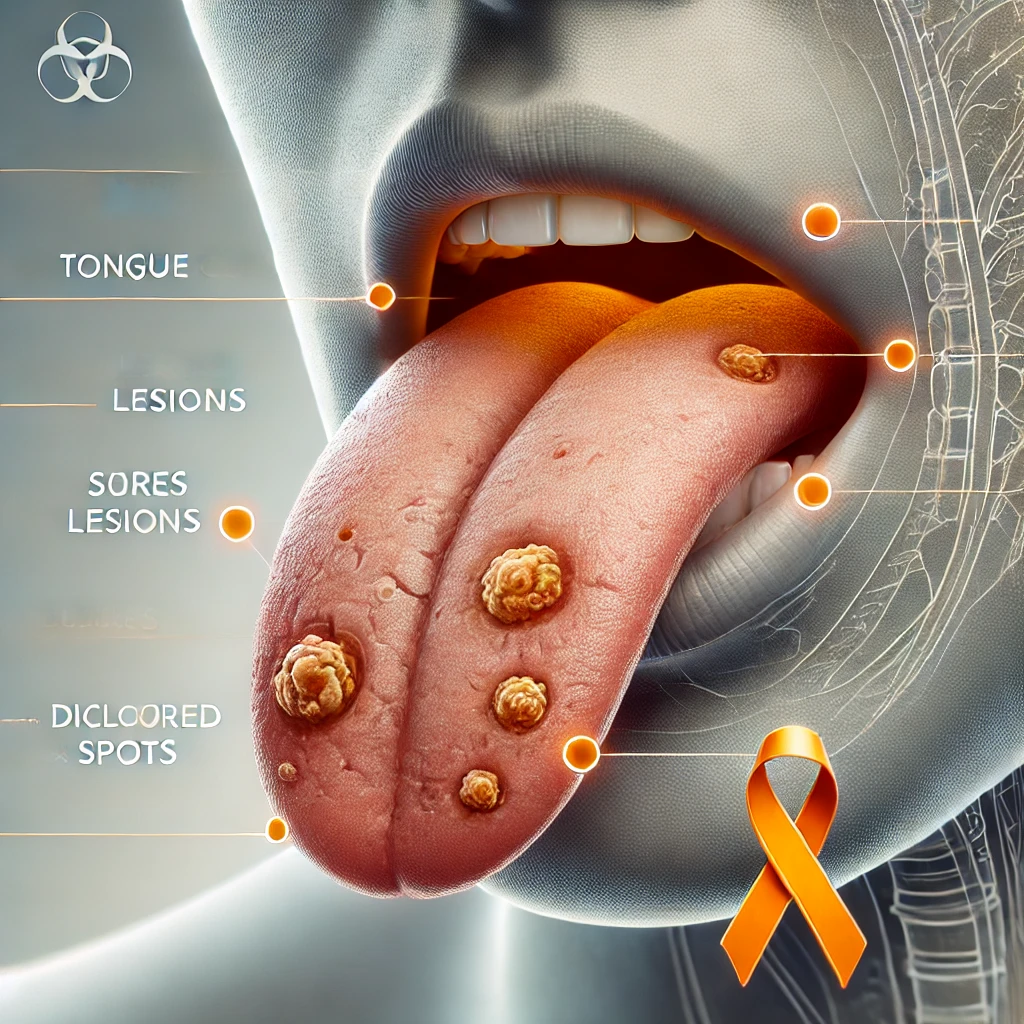What is tongue cancer?
Tongue cancer is a neoplasm that can affect the oral tongue or the base of the tongue, and arises from an accumulation of DNA mutations.
According to the data, tongue cancer is the most common form of oral cancer and, although it is not a widespread tumor, its mortality rate is high.
Prognosis of the disease
The prognosis of this disease can vary according to the timeliness of diagnosis, its stage, location and the patient’s general state of health.
Symptoms of tongue cancer
The main symptoms of a tongue tumor are:
- Persistent sore throat and jaw pain;
- Pain in chewing and swallowing, leading to weight loss (prevents the patient from eating properly);
- Tongue bleeding not due to bites or cuts;
- The sensation of numbness in the organ;
- Presence of a persistent white or red spot on the tongue;
- Formation of an ulcer or lump on the tongue.
Patients suffering from cancer of the oral tongue (the anterior median part of the organ) generally notice the symptoms quickly, which favors early diagnosis.
However, in the case of a tumor at the base of the tongue, the patient may also suffer from hoarseness and notice a change in tone of voice. Unfortunately, with this type of neoplasm, the symptoms are less obvious.
Diagnosis of tongue cancer
Tongue cancer is diagnosed through a physical examination, medical history, and certain tests, including:
- CT scan
- X-RAY
- Endoscopy
- Biopsy
What causes tongue cancer?
Tongue cancer is caused by the mutation of DNA cells. Although numerous studies have been carried out on the subject, the precise causes of this tumor are not yet known. However, certain factors can influence its appearance:
- advanced age
- Poor oral hygiene
- Cigarette smoking
- Alcohol
- HPV
- A diet low in fruits and vegetables
- Continuous exposure to toxic substances
Can it be prevented?
To prevent this tumor, it is necessary to reduce risk factors and therefore stop smoking, avoid alcohol abuse, follow a balanced diet, take care of oral hygiene, and protect yourself adequately against the papillomavirus.
Treatments for tongue cancer
Possible treatments for tongue cancer are :
Treatment depends primarily on the stage (i.e. degree of disease extension) and general clinical condition of the patient. Strategies generally involve a variable combination of :
Surgery: This is the strategy used in cases where the tumor is still limited.
The operation performed in such cases is called glossectomy, and involves resection of the part of the tongue containing the tumor; this may be followed by a second operation to reconstruct the organ. In cases where the cancer has spread to the lymph nodes in the neck, these are also removed.
Radiotherapy: This involves irradiating the tumor mass with X-rays. It is performed after surgery or as an alternative to surgery when :
the patient is not operable (i.e. the patient is in poor general health and therefore cannot undergo surgery) ;
the tumor is not resectable (i.e. the tumor has invaded structures adjacent to the original tumor, making complete removal impossible).
Chemotherapy: This is mainly performed in 2 cases:
Tumor recurrence
Large tumors, in which case chemotherapy is performed after surgery or radiotherapy.
Which specialist should I consult?
To treat tongue cancer in Turkey, it is necessary to consult an expert in oncology in Turkey , radiotherapy , general surgery, or maxillofacial surgery.
Prevention
The main strategy for preventing tongue cancer is to avoid risk factors:
- Stop smoking
- Avoid habitual consumption of excessive amounts of alcohol
- Maintain good oral hygiene
- Avoid behaviors that expose the person to the risk of contracting HPV, which is transmitted by :
- Direct contact with the saliva or genitals of HPV-infected people
- Indirect contact, such as sharing a toothbrush
Tongue cancer operations and surgery
Surgery is one of the most common options for treating tongue cancer. Surgeries and operations used to treat tongue cancer revealed by tumor location, size, and severity.
Here are some of the most common surgeries and operations for tongue cancer:
- Partial tongue removal: This surgery is used for small tumors located on the surface of the tongue. The doctor removes only the part of the tongue affected by the tumor, leaving most of the tongue intact.
- Total tongue removal: This operation is used for larger tumors, or for tumors that cannot be removed by partial removal. The doctor will remove the entire tongue and replace it with tissue taken from another part of the body, such as the arm or leg.
- Partial laryngectomy: This surgery is used for tumors that extend into the larynx. The doctor removes only the part of the larynx affected by the tumor.
- Total laryngectomy: This operation is used for tumors that have spread throughout the larynx. The doctor will remove the entire larynx and replace it with a device that enables the patient to breathe and speak.
- Lymph node removal: In some cases, your doctor may also remove lymph nodes close to the tumor to prevent the spread of cancer cells. It’s important to note that every patient is unique, and the most suitable surgeries and operations for tongue cancer vary according to individual circumstances.
The surgeons discuss with the patient the most appropriate treatment options for tongue cancer after a specialized visit to the best clinics in Turkey. The surgeon takes care of the diagnostic classification, performs surgery on the tongue tumor, and also handles its reconstruction. He also monitors the patient’s post-operative follow-up, which includes outpatient check-ups within 5 years of the end of treatment.
Stay in touch to get more updates & news on Orangedip!


